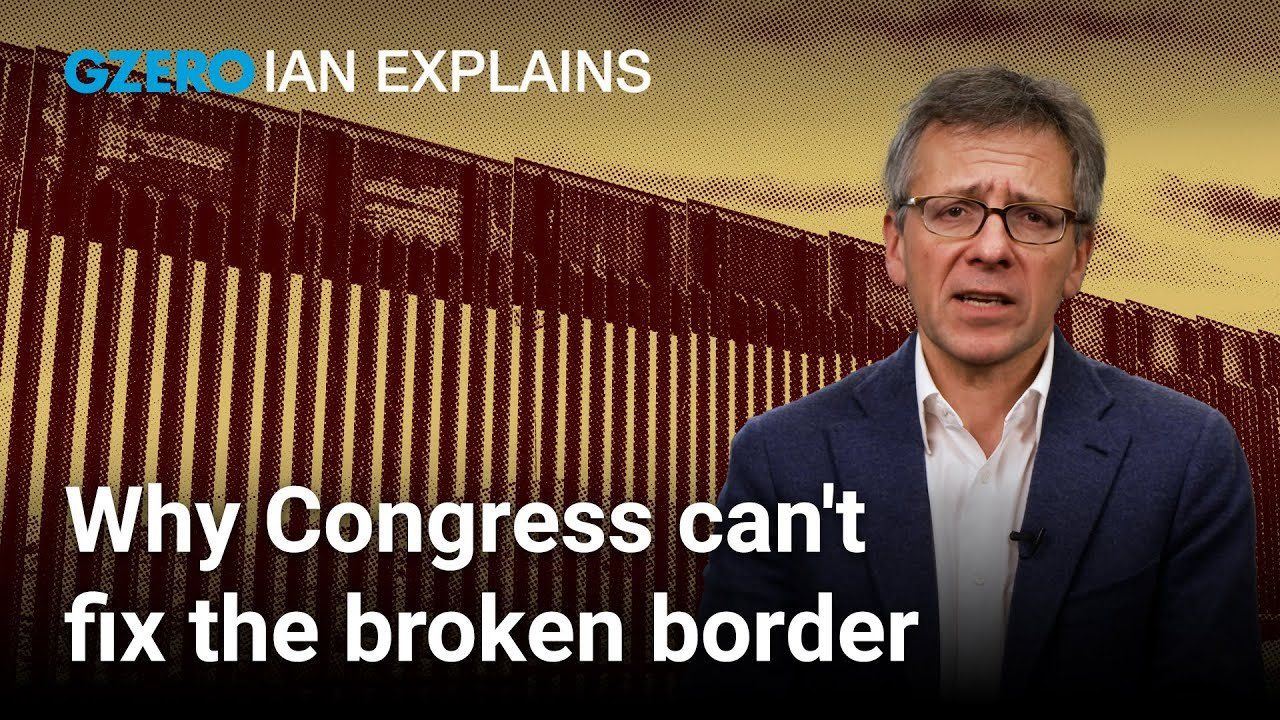
In this edition of Ian Explains, we look at the border deal that wasn’t and try to answer a very complicated question: Why is our immigration system so broken?
The US is a country of multiple realities. The economy is booming. Everything is expensive. Donald Trump is a threat to democracy. Donald Trump is the leader of the GOP. Taylor Swift is a pop icon. Taylor Swift is a Deep State asset. And then there’s immigration. In one reality, Democrats and Republicans have come together on legislation to secure the Southern border at a time when bipartisanship in Washington is all but unheard of. But in another reality, none of that matters, because the bill will never become law, Ian Bremmer explains on GZERO World.
So how did we get to this point, and why won’t anything come of it? The answer to the first question starts with Ukraine. Late last summer, US funding for Ukraine’s defense against Russia’s invasion (talk about a border crisis) was drying up. And for the first time since the war began, it was looking like Republicans were not going to approve more money until THEIR key national security issue was addressed.
Then President Biden did something truly unexpected. He said: “Ok.”
Watch the upcoming episode of GZERO World with Ian Bremmer on US public television this weekend (check local listings) and at gzeromedia.com/gzeroworld.
- What We’re Watching: China’s open door, sticky US border policy, Iran’s “mercy” deficit, Kosovo’s creeping crisis, Nepal’s “Terrible” new top dog ›
- Stalled deal on US border security leaves Ukraine in the lurch ›
- Will US-Canada border deal mean riskier future for migrants? ›
- The Graphic Truth: Black representation in the US Congress ›
- Border disorder: Why Capitol Hill lawmakers disagree on the US immigration crisis - GZERO Media ›
- Why Republicans hold Biden accountable for border problems - GZERO Media ›
- The New York migrant crisis up close - GZERO Media ›